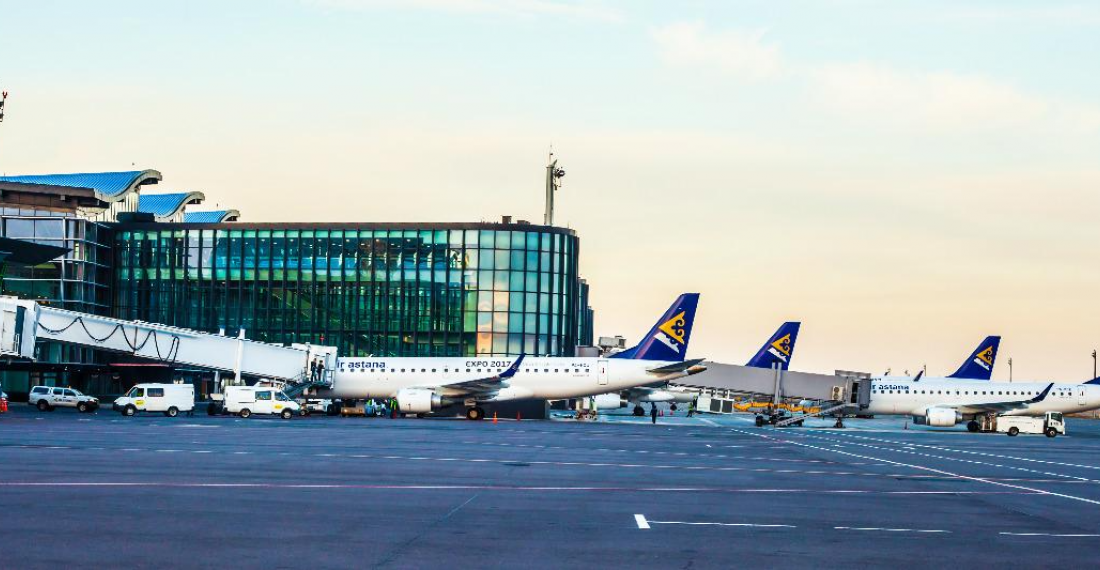Kazakhstan saw a steady increase in both domestic and international air travel in 2022.
Results from the first 11 months of 2022 indicated a steady growth in passenger traffic when compared to both 2021 and pre-pandemic levels, when a total of 9.9 million passengers travelled by air inside Kazakhstan. The Kazakh Committee of Civil Aviation predicts that the final numbers for 2022 will exceed 10 million passengers, reflecting a 15% increase compared to 2021.
Of the 9.9 million passengers who travelled between January and November in 2022, domestic flights within Kazakhstan accounted for a total of 7 million passengers, while international flights carried a total of 2.9 million passengers. Kazakh airlines have also been expanding their networks, with 25 weekly flights to 7 new countries including Greece and Vietnam having been opened in the past year, originating mainly from Almaty International Airport.
The expansion of the geographical scope of flights within and beyond Central Asia comes as a part of Kazakhstan’s plans to demonstrate the Kazakh Civil Aviation Committee’s desire to improve the country’s aviation safety standards.
The Kazakh Civil Aviation Committee has worked to reform the civil aviation industry in Kazakhstan by shifting towards following the European Management model. As a result, the domestic Aviation Administration of Kazakhstan now directly performs supervisory functions, which has helped increase control and supervision while trying to minimise corruption. As a result, Kazakhstan’s flight safety level is now 15% higher than the global average in 2021, as reported by the International Civil Aviation Organization (ICAO).
However, the expansion of Kazakh air travel has not been entirely without challenges. Current instability in the aviation fuel market has meant that, beyond the previously mentioned new international routes, Kazakh airlines have struggled to meet the growing demand to open new international flights since the lifting of COVID regulations. Meanwhile, the ongoing war between Ukraine and Russia has become a challenge for the Kazakh Civil Aviation Committee as a large number of flights have had to be reorganised and re-routed due to the closure of airspace in Russia and Ukraine.







